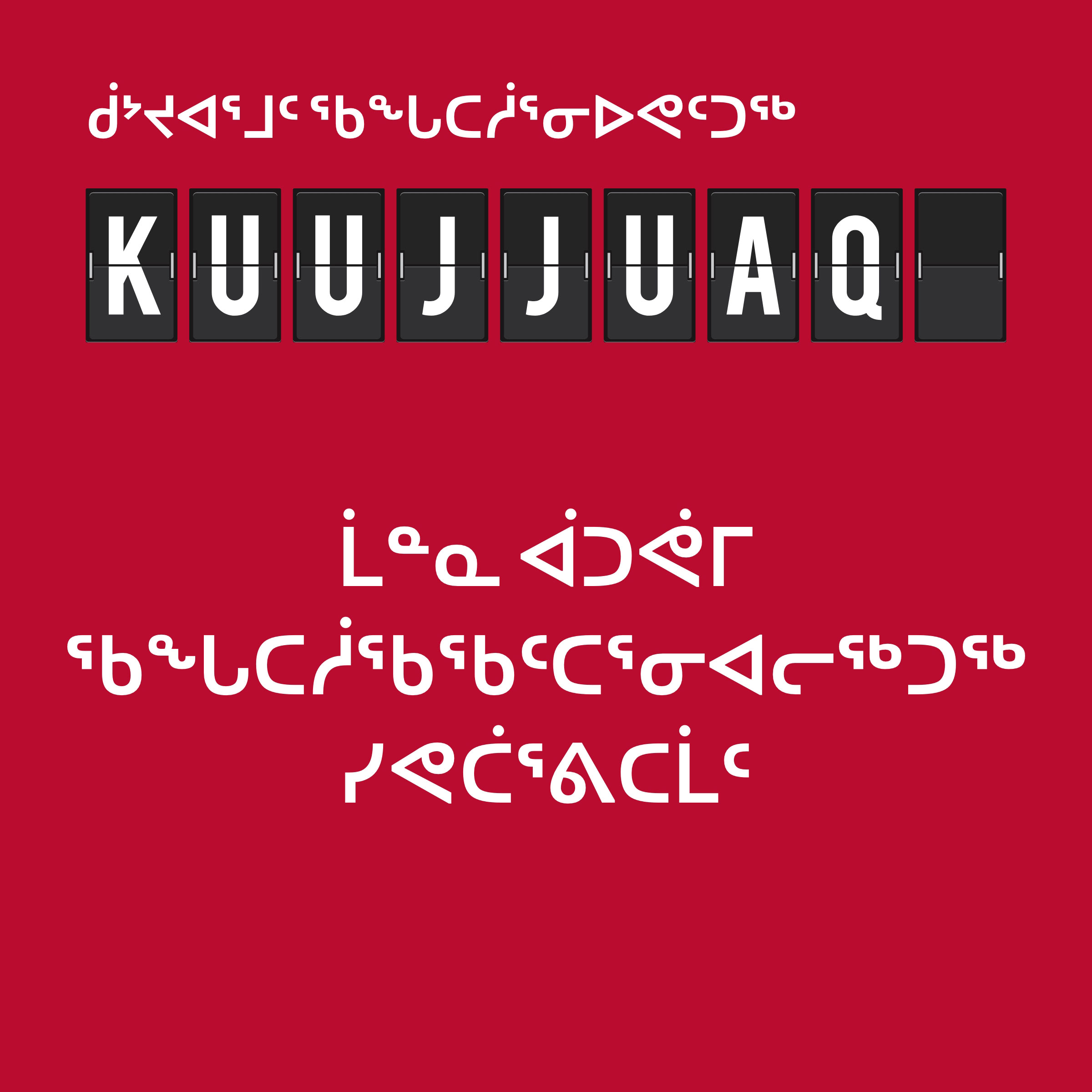Ottawa, December 20, 2021
We are now more than two months into the Iqaluit Water Crisis. Winter has settled in. The public emergency has made international headlines. Iqalungmiut have endured: From neighbours getting river water for Elders to volunteers standing out in the cold to hand out bottles of water. Trying times often bring out the best in people and communities.
That’s true behind the scenes too, where a number of organizations have been crucial in getting water to Iqalungmiut. Their workers have had to pour dozens of overtime hours into their job. The work-life balance so many of us seek has been temporarily thrown out the window. But you won’t hear any of those workers complain.
“This is unprecedented, but everyone realizes what it’s for,” Hussam Beg said. Hussam manages Frobisher Bay Touchdown Services in Iqaluit, which normally provides ground services for military, air ambulances and private planes. Since the crisis started, though, Hussam has been working closely with other Iqaluit partners to make sure a steady stream of potable water is still getting to residents.
“We’re working hand-to-hand and shoulder-to-shoulder and it’s developed a really good camaraderie,” Hussam said, just in from the cold after helping Canadian North cargo staff unload a CargoJet packed with bottled water and load another jet with cargo bound for Ottawa.
His staff get to meet and joke around with staff from other organizations and invite them back to their base for coffee, Hussam said.
“Everyone in their hearts knows that we’re helping, so we get that warm fuzzy feeling of bringing people together in a time of crisis. That wasn’t intended, it’s just a by-product,” said Hussam.
And it’s not just his staff that have rallied to chip in – it’s other organizations and individuals that Hussam is quick to give credit to.
“I’m so thankful if I have time to go collect water for myself that it’s volunteers I know standing out in the cold, giving out water – and they’re doing it for free,” he said.
On airside, Frobisher Touchdown Services also gives their apron space to Air Canada jets flying in about once a week to deliver water, Hussam said.
Another local partner that Hassam said deserves a lot of recognition is Mike Wilkins and his team over at RL Hanson.
Mike’s team has been solely responsible for delivering the tonnes and tonnes of bottled water that has been arriving jetload after jetload from the airport into the actual community.
Sometimes that means helping Canadian North staff break down up to 52 pallets of water on the tarmac before it freezes, Mike said.
“At the end of the day everybody just tries to come together. It’s not ideal, but we’re all getting through it,” he said.
Each pallet carries from 1,000 to 1,400 kilograms of water, Mike said.
“Everyone’s a bit tired and can get on edge sometimes, but everybody realizes what we’re doing and what it’s for – and that’s something we’re proud of and happy to help out with,” he added.
Mike, who has called Iqaluit home for nearly 20 years, said he’s never seen anything like this crisis. During sealift season, if ships pile up in the bay because of bad weather, his staff can work around the clock to make sure Iqalungmiut get their cargo. But this water crisis was, of course, unexpected and his company has to fill its regular contracts, like snow removal and school bussing services, at the same time.
“We’ve had a couple of payrolls creeping up to 175, 180 hours,” for individual employees over a two-week period, he said.
And this crisis has happened while the whole territory has been adjusting to COVID for nearly two years now.
Because of that, Mike and some of his staff haven’t been able to take a holiday for two years.
“I don’t know if there’s light at the end of the tunnel yet because we haven’t looked up long enough to see if there’s one there,” Mike said.
“It’s been a challenge, but hey, it’s a crisis and our territory needs us,” he added.
Partners in the South have been crucial in getting water to the Iqaluit airport for Hussam’s and Mike’s team to help Canadian North unload, unpack and get into the city.
Simon Gadbois is the Operations Manager of Arctic Consultants, a freight forwarding company and food supplier that has been serving Nunavik, Nunavut and the High Arctic for nearly 40 years.
The key to responding to this crisis has been speed and flexibility, Simon said.
“I think we got our first call from the Government of Nunavut at 9 AM and by that same afternoon we were delivering water to Canadian North in Ottawa,” he said.
Like the others, Simon said his team has been very willing to put in extra work during the crisis.
“This is a major crisis in a big city like Iqaluit with nearly 10,000 people. Having no water – we cannot imagine what it’d be like,” he said.
It’s that empathy and understanding that motivates him and his team to put in the hours.
But it’s presented some logistical challenges.
“Nobody was expecting that volume of water to be needed,” Simon said.
Arctic Consultant scoured the whole country for water suppliers to meet the Government of Nunavut’s orders, settling mostly on suppliers in Ontario and Quebec, he added.
They deliver about 40 tonnes of water per plane load and have orders for 14 plane loads on deck.
Simon said his staff are really taking the company’s motto – “Melting the distance” – to heart.
“How can we melt the distance? Wherever water is, we’ll bring it to an airport to get it to Iqaluit,” he said.
“Everyone understands the situation, that it’s an emergency. It’s extra work but it’s extra reward too. We’re proud to be helping.”
Canadian North has also partnered with the City of Iqaluit for the distribution of the water, as well as CargoJet, Air Canada and Chrono Aviation in getting water to Iqaluit.
Canadian North partnered with numerous other airlines and contractors to bring 33 flights full of bottled water to Iqaluit by the end of November. That includes jets operated by Canadian North, Air Canada and CargoJet as well as Hercules turboprop planes. So far, the total amount of water transported to Iqaluit by Canadian North is approximately 2.5 million bottles or 1.25 million litres. For comparison, an Olympic-size pool holds 2.5 million litres. Canadian North continues to work with its partners to ensure a steady flow of potable water reaches Iqaluit.




